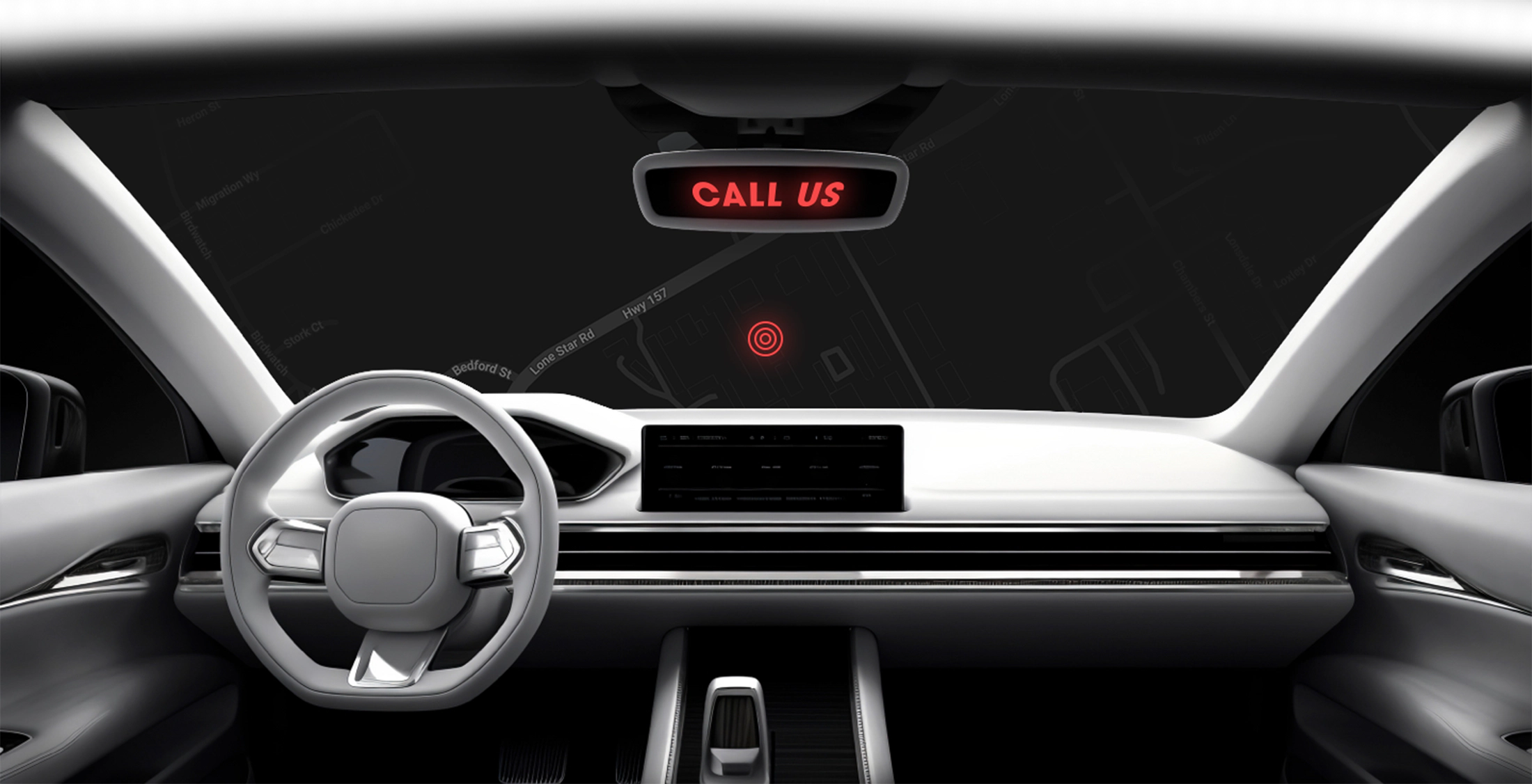Lane Departure Warning Alerts for Enhanced Vehicle Safety | Auto Service Solutions
Published
Dec 05, 2024
Tags
Discover how Lane Departure Warning Alerts from Auto Service Solutions enhance safety with advanced vehicle safety technology and driver assistance systems. Protect yourself with crucial collision prevention features for a safer driving experience.
Lane Departure Warning Alerts Enhance Safety
Advanced vehicle technologies significantly contribute to improved road safety features. Lane departure warning systems are engineered to alert drivers when they veer out of their designated lane, enhancing vehicular safety.
These proactive alerts aim to reduce the chances of collisions caused by driver distraction or fatigue.
Integrating these systems with other driver assistance technologies creates a comprehensive framework for collision avoidance on the road.
Statistics reveal that vehicles outfitted with lane departure alerts experience a notable decrease in incidents, providing drivers with added assurance. User feedback underscores the efficacy of these alerts in fostering heightened awareness while driving.
Companies like Auto Service Solutions advocate incorporating such safety technologies to help motorists embrace better driving practices and experiences.
Understanding Lane-Keeping Technologies
Modern advancements in vehicle design emphasize improved safety features for drivers. Lane-keeping systems play a crucial role, assisting users in maintaining their position within designated lanes.
These sophisticated safety systems utilize advanced sensors to detect lane markings on the road accurately.
Alert notifications are triggered to inform drivers when deviations occur, helping to prevent potential accidents.
Some technologies integrate automatic braking functions that activate when required to enhance vehicle stability. Many systems incorporate blind spot monitoring, providing an extra layer of protection for road users.
Familiarity with these innovations allows users to maximize the safety benefits while driving. As technology evolves, future enhancements promise to deliver even greater capabilities, ensuring safer experiences for all road users.
How Do Alert Notifications Work
Effective communication of important information is crucial for enhancing highway safety for drivers. The system promptly alerts the driver through visual and auditory signals when dangers arise.
Sensor technology monitors the vehicle's surroundings, detecting potential hazards affecting driving.
Alerts are integral for addressing issues like lane departure and other threats to road safety.
These driving aids help maintain focus on traffic regulations and ensure proper responses to dangers. Effective alerts not only improve awareness but also boost reaction times, making a significant contribution to overall road safety.
Awareness of how these notifications operate empowers drivers to enhance their defensive driving techniques.
Highway Safety Communication
- Effective alerts can reduce crash risk by up to 30% by improving driver awareness.
- Sensor technology can detect obstacles within a range of several meters, allowing for timely warnings.
- Studies show that auditory signals are more effective than visual signals in capturing driver attention during emergencies.
- Regular use of driving aids has been linked to improved compliance with traffic regulations among drivers.
Benefits Of Driver Assistance Systems
Modern automobiles incorporate advanced technologies aimed at enhancing driving safety. Enhanced safety features like forward collision warning enable drivers to respond effectively to impending hazards.
Visual alerts offer immediate feedback regarding road conditions and potential obstacles.
Lane monitoring systems assist drivers in maintaining their proper position within traffic, ensuring smoother navigation.
Audible warnings guarantee that important notifications are heard without distraction. Emergency braking technology can dramatically minimize collision impacts by intervening at critical moments.
These vehicular sensors are integral in promoting safer driving experiences and reducing accident risks.
Enhancing Vehicular Safety With Alerts
Modern vehicles incorporate sophisticated mechanisms to ensure optimal safety standards. Integrated safety systems play a pivotal role in alerting drivers to potential dangers.
Visual alerts, such as blinking lights, capture attention quickly, while auditory signals provide immediate notifications.
Vibration alerts enhance situational awareness, offering tactile feedback that complements other alert types.
Active safety measures, including predictive alerts, warn drivers of upcoming hazards, effectively reducing accident rates.
Studies highlight the impact of these notifications, demonstrating improvements in driver engagement and focus on the road.
The synergy of diverse alert systems fosters increased vigilance and enhances overall vehicular safety.
| Alert Type | Functionality | Impact on Safety |
|---|---|---|
| Visual Alerts | Blinking lights to capture attention quickly | Improves driver awareness |
| Auditory Signals | Immediate notifications through sound | Enhances response time to dangers |
| Vibration Alerts | Tactile feedback for increased situational awareness | Complements other alert types for better focus |
| Active Safety Measures | Predictive alerts for upcoming hazards | Reduces accident rates significantly |
The Role Of Steering Intervention
Modern vehicle technology enhances safety through sophisticated systems designed to assist drivers effectively. These advanced solutions offer real-time feedback and play a significant role in collision mitigation.
With integrated alert mechanisms, the technology detects lane departures and reacts promptly to support safe driving.
Safety enhancements through automatic adjustments promote lane discipline, keeping vehicles centered on the road.
Drivers benefit greatly from dynamic assistance, encouraging safer driving habits while maintaining focus. These systems seamlessly integrate with existing traffic management technologies, fostering a collaborative approach to road safety.
User-friendly interfaces ensure drivers can effectively utilize these advanced features, enhancing their overall experience. Ongoing education about proper use is vital in preventing over-reliance on these innovative solutions.
Road Safety Features Explained
Enhanced protection for drivers is a hallmark of contemporary automotive design. Innovations in safety are integrated into vehicles to offer robust support and ensure a secure driving environment.
Lane change assist, for instance, actively aids drivers in executing safe maneuvers, reducing the likelihood of accidents.
Real-time alerts deliver timely information about potential hazards, empowering drivers to make informed decisions while navigating the roads.
Risk detection technologies constantly analyze surrounding environments, enabling vehicles to respond quickly to unexpected changes.
This continuous monitoring allows user interface systems to communicate critical safety information effectively, maintaining driver awareness.
Maneuvering help features promote smoother driving experiences, especially in complicated traffic situations.
These safety innovations collectively foster an atmosphere of vigilant driving, underscoring the importance of always remaining alert and aware.
| Safety Feature | Description |
|---|---|
| Lane Change Assist | Helps drivers execute safe maneuvers, reducing accident likelihood. |
| Real-time Alerts | Provides timely information about potential hazards for informed decision-making. |
| Risk Detection Technologies | Analyzes surroundings to enable quick responses to unexpected changes. |
| Maneuvering Help | Facilitates smoother driving experiences in complex traffic situations. |
Importance Of Situational Awareness
Adopting a proactive approach enhances safety on the roads. Awareness of your surroundings plays a significant role in effective driving safety measures.
Actively observing the environment enables drivers to detect potential hazards before they escalate.
Keeping up with road condition monitoring is essential for making informed decisions.
- This awareness empowers drivers to utilize support features effectively.
- Lane deviation alerts, for example, help maintain position within the correct lane.
- Regularly reflecting on how to enhance driving skills contributes to accident prevention.
- Improving situational awareness leads to safer driving experiences for all road users.
Collision Avoidance And Accident Prevention
Proactive strategies enhance driving safety and reinforce the importance of vigilance. Defensive driving techniques are integral to minimizing risks on the road.
Integrated warning systems significantly improve drivers' situational awareness by providing timely alerts about potential hazards.
Regular education on transport standards fosters adherence to safety regulations among all road users.
Vehicle intelligence features are pivotal in hazard detection, equipping drivers to respond effectively to unforeseen challenges.
Maintaining a focus on safety compliance ensures a secure environment for everyone on the road.
Embracing these practices helps cultivate safer driving habits and diminishes accident rates.
Driving Safety
- Defensive driving can reduce the risk of accidents by up to 30%.
- Integrated warning systems can alert drivers to potential hazards, improving reaction times by 50%.
- Regular safety education has been shown to increase compliance with traffic regulations by 25% among drivers.
- Vehicles with advanced hazard detection features can decrease collision rates by 40%.
Related Posts
Contact
We’re here to help!
Call to schedule a service or ask about our offerings.




